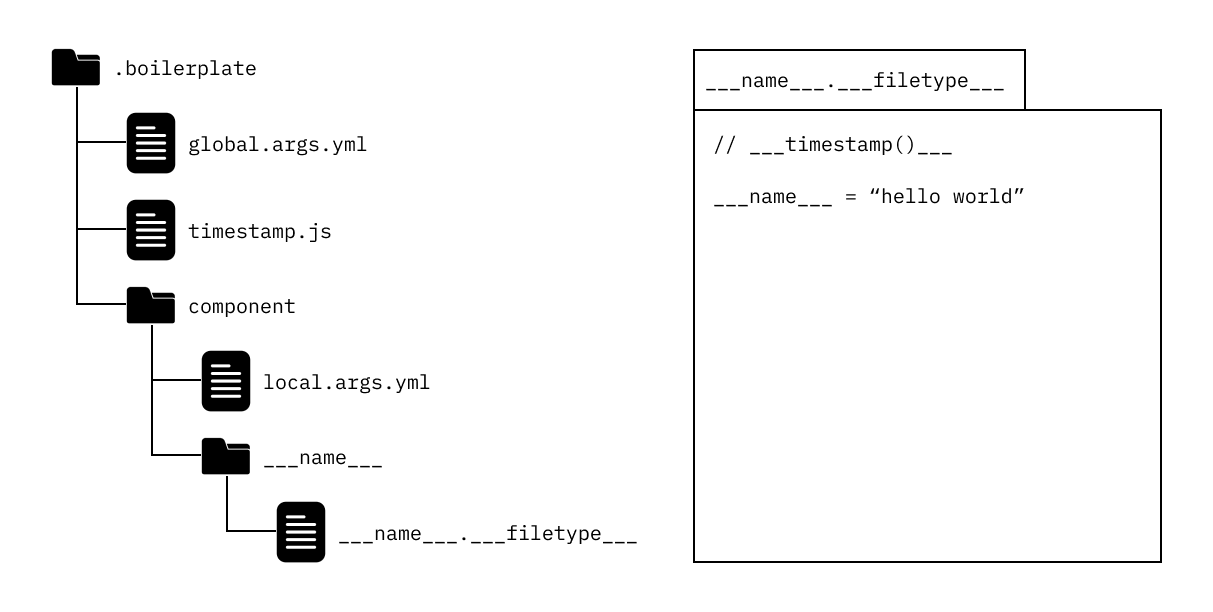How It Works
Boil Directory
Boilerplate templates are stored in a directory called .boilerplate at the root of your project. It consists of sub-directories, a global.args.yml file and optionally some *.js files.
Here is a simple example of a .boilerplate template directory.

Each sub-directory is a boilerplate template. You will be able to generate boilerplate files and/or folders from a template using the following command (see here for more details).
boil up [DIRECTORY] [ARGS], e.g. boil up component --name Example --filetype js
Template Arguments
Template arguments are variables that can be used within your boilerplate templates. They can be defined globally, i.e. shared amongst all templates, within the global.args.yml file. For template-specific arguments you can define them in local.args.yml files within your individual template folders.
Local arguments takes precedence over global arguments. If the same argument name is defined in both global.args.yml, as well as local.args.yml, then the definition from local.args.yml will be used.
Here is the structure of an argument definition within the *.args.yml files.
# definition of 'filetype' arg
filetype: # REQUIRED: arg will be called using --filetype
shorthand: ft # OPTIONAL: arg can be called using -ft instead of --filetype
description: file type # OPTIONAL: used in help menu
default: js # OPTIONAL: if arg not provided by user then default to this value
options: # OPTIONAL: if user provides an input not in this list then throw an error
- js
- py
- go
Placeholders
Template arguments can be called within file names, folder names and within any file's content using template argument placeholders.
The placeholders are defined by wrapping them in ___. The placeholders will be replaced with the user-provided argument values when the boilerplate files and/or folders are generated.
___argument___
Template Functions
Template arguments are able to solve the majority of templating configuration problems. However, by adding the power of Javascript functions, there is really no limit to how dynamic and customized your templates can be.
In order to use template functions the filenames need to match the desired argument name. Below is the structure of a template function.
// usage in templates: ___example(arg1, arg2, ...)___
module.exports = function (/* any args incl. local & global template args */) {
// insert code here
};
You can use any arguments you like - just the way you'd write a regular Javascript function. If you'd like to use template arguments as inputs to your function then match the function argument name to the desired template argument name.
Here's a simple example.
// greeting.js
module.exports = function (name) {
return `Hi, my name is ${name}!`;
};
You could then invoke the function above within a template placeholder.
___greeting(name)___